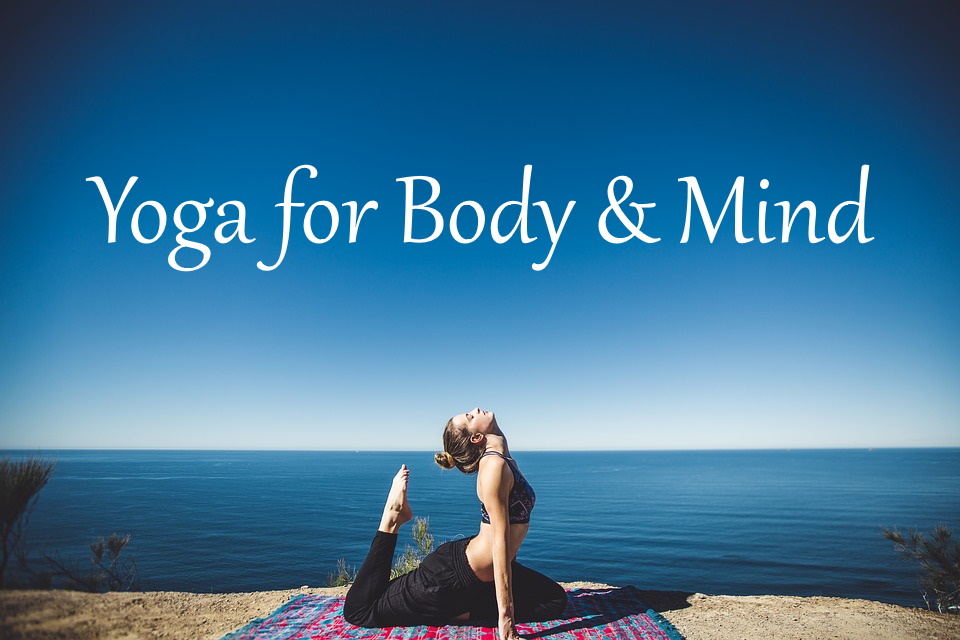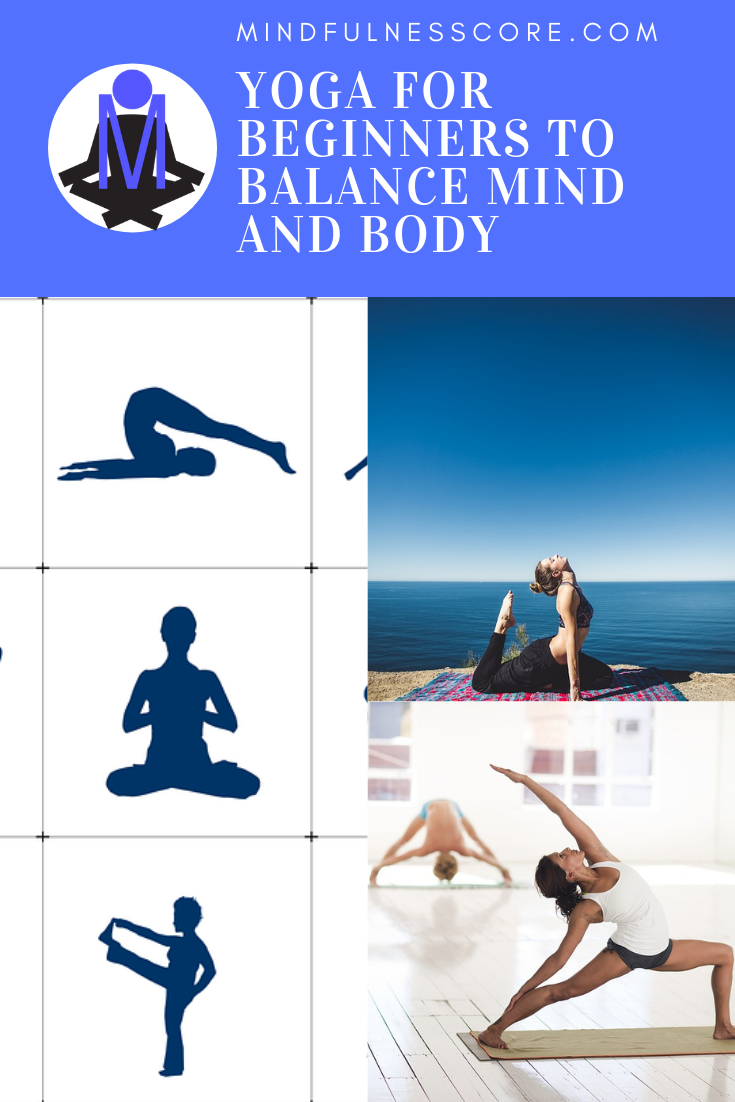Yoga for Beginners to Balance & Control Mind And Body
Do us a favor, take your time, and try to think of a physical expression that is not associated with a mental emotion? We are going to be honest with you, we have spent hours thinking into it and couldn’t find a single physical state that is not defined, determined, or impacted by a mental state. Your mouth is filled with water but the reason is that you “THOUGHT” of your favorite food. You are feeling tingles in your stomach but the reason is that you are “EXCITED” about an upcoming event. These are just a few of the examples of how your physical sensations are always accompanied by your feelings and emotions.
Simply put, it highlights how your mind and body are always connected. This is why you would hear the term mind-body connection being flaunted a lot these days. In all honesty, however, the mind-body connection is not a comprehensive term that covers all aspects of this connection. Why? Because for the most part, when you hear the term mind-body connection, you immediately think of the ways how your mind affects your body. If you look closely, even the examples that we have stated above also correspond to how your thoughts and excitement, an affair of your mind, cast its impact on your physical body.
In reality, however, the mind-body connection is only one side of the coin. The other side is what can only be termed as the body-mind connection or the way that your physical body affects your state of mind. Though usually undermined, your body has the potential to cast just as important of an impact on your mind as the other way around. Considering that your mind and body are in such a firm bond that works both ways, it is natural for you to be sure that there must be an exercise that works equally well to optimize the functionality of your body as well as your mind. And you are absolutely justified in thinking so. If you have been in search of one such comprehensive exercise, your answer lies in “Yoga”.
But before we get into the nitty-gritty of Yoga, wouldn’t it be useful if you had a clear understanding of how your mind affects your body as well as the way that your body casts its impact on your mind? Let’s begin there, then.
The Mind-Body Connection
Someone who wants to brag about his habit of practicing Yoga and its potential benefits is likely to tell you how it’s not possible for everyone to find the mind-body connection or it’s not as convenient as it sounds, to say the least. The funny thing is, the mind-body connection isn’t something to be found, in the first place. Its existence is permanent that is experienced by all of us on a routine basis.
Consider the examples given above. If the thought of your favorite food expresses itself as water filled in your mouth, the experience itself is that of the mind-body connection. If the excitement of a picnic tomorrow morning with your loved ones makes you feel tingles in your stomach, it can only be explained in terms of how your excitement is casting an impact on your gut. If you made it to the finals of the Inter-University tournament of your favorite sport and failed to perform up to your potential, it is only the nervous state of mind that is expressing itself as an impediment to your muscular actions.
Point being, that the mind-body connection is right there at all times. Whether you realize it or not or perhaps even like it or not, it is not going to bail on you. The problem, however, one that practicing Yoga essentially aims to fix, is the intensity of this connection that sometimes begins to work against us. For instance, it can’t possibly help you in any way if your mind is so stressed out or anxious about an academic test in the morning that it disables you from concentrating on the preparation, in the first place. If the anger that resides in your head is so intense that it puts you at the risk of a heart attack, wouldn’t it be much better if you didn’t have the mind-body connection, to begin with?
In other words, the problem doesn’t lie in a lack of mind-body connection, rather, it has its origin in the connection being so pronounced that it gets out of control for an average individual. Practicing Yoga can, therefore, be thought of as a strategy that dials down the connection temporarily. By separating the mental component, it activates the relaxation response that enables the body to perform up to its maximum potential. Remember, the information that is being delivered to you is not based on conjecture. It’s the findings of a psychological study performed at the prestigious Harvard University. It concluded that in principle, once the mind is silenced with Yoga that clears up the head of all the disturbing and troubling thoughts, the physiological responses follow which include a reduction in the production of stress hormones, and stabilization of the breathing, blood pressure, and heart rate. Such physiological responses are so pronounced in terms of their benefits that they can cure a migraine or even infertility in some cases.
It is important to realize that Yoga can essentially be thought of meditation but with an added component of movement. This makes the practice particularly more enticing for someone who has a hard time taking himself seriously enough to sit silently in solitude and focus on a heightened awareness of the inner self including your feelings and emotions as well as the outer surroundings. As such, all of the benefits of meditation and mindfulness for mental health including activation of the natural relaxation response, mood stabilization, an enhanced ability to cope with the stress and anxiety on a day to day basis, and a way out of overthinking, etc. are also associated with Yoga.
The Body-Mind Connection
Now that you have thoroughly understood the mind-body connection, it is time that we introduced you to the lesser-known body-mind connection or the way that your physical body casts an impact on your state of mind. Similar to the mind-body connection, the body-mind connection is not elusive either. It exists at all times and you can easily understand and identify it if you start to pay attention. Let’s take a look at an example to bring your attention to how your body is constantly holding an impact on your mind.
Think about exercising, for instance, Imagine that you went on a walk at the nearby park. Would you identify walking as a physical activity? Of course, you would. How would you elaborate the way you feel once you are done with this physical exercise? Other than being a little tired depending on how extensive your work out was, wouldn’t you say that you find yourself happier and content? There is no argument over the fact that physical exercise can help a great deal in uplifting your mood. Break it down to analyze and evaluate. You are performing an exercise which is the physical component of it. The effect of it is a better mood which is the mental component of it. Do you see how your physical body just cast an effect on your state of mind?
Examples could be plenty. Why do you think people take a hot bath or look for one of those hot springs to spend a bit of their time when they are stressed? The primary reason is that this physical activity acts as a stress reliever for them. Remember that the effect can go the other way around as well. Say, for example, if you work out at the gym on a routine basis, failure to indulge in it consecutively for a few days is likely to make you feel grumpy for no apparent reason. Here again, a change in the physical component is casting its impact on the state of mind.
If you tune into how your body constantly casts an impact on your mind, you would be able to see how strong the connection really is. It shouldn’t be a novel experience for you to have a bad mood in the night for reasons that are completely lost on you. And then the next morning, you wake up with a fever or perhaps a common cold. If you change your perspective and focus on the body-mind connection, you would be able to see that your uncontrollable mood in the night was actually how the impending illness of your physical body was starting to cast an impact on the way your mind was working.
Do you have sufficient examples? If not, we have the most interesting one for you. Remember the time when your friend was really angry at his boss that he couldn’t utter out the words properly. What did you present as the first remedy to all the anger that was making him implode? If we remember it correctly, your exact words were “Calm down, take a deep breath”. No, we are not even going to try and elaborate this one for you. Think for yourself until the realization dawns on you that without a conscious effort, you blurted a statement that thoroughly acknowledged the existence of the body-mind connection.
Among the wide range of yoga postures that are used for various different reasons, there are a few that are used to optimize the body-mind connection. For instance, bending forward as well as inversions are physical postures that are known to have a calming effect on the state of mind. Similarly, there are various other postures that help in recharging and reenergizing the brain to make it function optimally. The important thing to keep in mind is that it is the physical postures that are helping you revitalize your mental health which highlights the body-mind connection and how Yoga helps you optimize and coordinate it.
Key Take Away
The primary aim of this article was to debunk two of the greatest myths associated with the practice of Yoga. The first was the misconception that Yoga is only beneficial for your physical health. Since Yoga, in the simplest of terms, can essentially be thought of as a form of exercise, most people make the mistake of thinking about its benefits in terms of physical health only. In light of its meditation and mindfulness component, however, it has not been accentuated that the practice is just as effective for your mental health as it is for your physical health.
The second misconception that we tried to debunk was the existence of a mind-body connection only. The majority of us are familiar with the way our minds can cast an impact on our physical body but not even a handful of us are aware of it can go the other way around as well. The body can cast just as strong of an impact on your overall state of mind.
Now that the facts are at your disposal and you have been thoroughly informed about how the practice of Yoga can lend you a hand in coordinating your mind and body, you are in a much better place to make the decision of opting for it. Being a comprehensive practice that helps your physical and mental health equally, spending a few minutes of your time every day on Yoga will be a decision that you won’t have to be disappointed in. The best part is that despite popular opinion, there is no need for you to hire a coach in order to get started. You have the internet at your disposal that makes all the information that you need more accessible. A few minutes of surfing YouTube would perhaps let you gain enough knowledge to start practicing Yoga as a beginner.



Pingback: Mind & Introspection Illusion: How People View & Understand Themselves - Mind Field